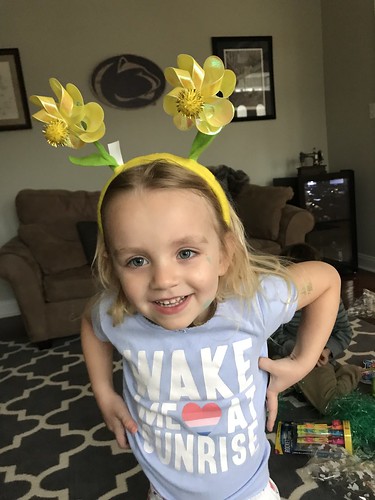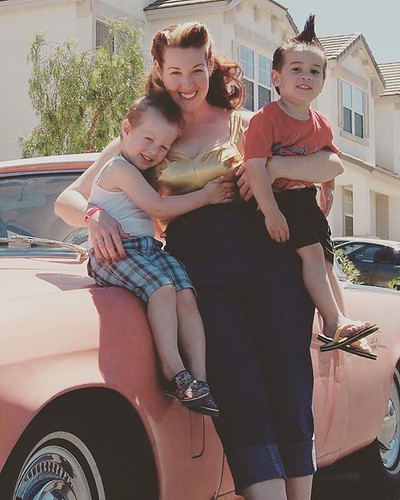To have a calling to serve their community. ADDO dispensers also added that aside from making far more profits as outcome of seeing extra patients, in addition they strive to cut down maternal and youngster mortality, because those who’re dying are also their relatives.Patients’ experiences with referrals and services supplied by CHWs, ADDOs, and well being facilitiesThe MedChemExpress Apigenine majority of focus group participants reported getting visits from CHWs two or 3 instances a month. Participants acknowledged that the function of CHWs has helped reduce maternal and kid health challenges and deaths in the neighborhood, “CHWs are well recognized by individuals; their perform is of a massive relevance. Pregnant females for instance have come to understand danger signs that needs referral to health facility. Honestly, youngster mortality has decreased now”  (concentrate group participant, Kibaha). Having said that, as CHWs reported themselves, females felt that CHWs without bicycles or motorbikes have difficulty going to all households, especially in pastoral communities, where populations are transient. With regard to referrals, what women in the concentrate groups PubMed ID:https://www.ncbi.nlm.nih.gov/pubmed/26821916 expressed was similar to what CHWs had stated, in that a PIM-447 (dihydrochloride) site choice to refer to either an ADDO or perhaps a health facility is determined by the prevailing well being issue
(concentrate group participant, Kibaha). Having said that, as CHWs reported themselves, females felt that CHWs without bicycles or motorbikes have difficulty going to all households, especially in pastoral communities, where populations are transient. With regard to referrals, what women in the concentrate groups PubMed ID:https://www.ncbi.nlm.nih.gov/pubmed/26821916 expressed was similar to what CHWs had stated, in that a PIM-447 (dihydrochloride) site choice to refer to either an ADDO or perhaps a health facility is determined by the prevailing well being issue
. They mostly talked about pregnant women’s circumstances that included bleeding throughout and just after pregnancy, blood stress, anemia, and stomach ache, whilst amongst newborns and young children under 5, they mentioned malaria,coughing, higher fever, and umbilical cord complications. Ladies indicated that in most cases, CHWs referred to HFs and not to ADDOs. Despite their concerns that they had been supplied with oral and not written referrals for the HF, they had been well received by wellness facility staffespecially after they pointed out the CHW who referred them”I assume they no longer have referral forms, but we are effectively received in the overall health facility, and they congratulate the CHWs on sending us in time before the condition is worse” (concentrate group participant, Kibaha). The handful of women who had been referred to ADDOs by the CHWs also reported becoming welcomed kindly by dispensers. participants expressed their views  around the value of CHWs functioning together with ADDOs and HFs in improving maternal and kid well being and loved ones preparing services. The ladies agreed that all 3 levels of care are important and relevant. One stated, “Yes, the CHWs are following sick folks within the communities and sending them towards the respective facility. In the health facility, there are actually unique tests. In most instances, well being facilities are out of stock of necessary medicines, you need to as a result visit the ADDO” (concentrate group participant, Kibaha). Lack of medicines at HFs was a challenge, particularly when individuals are asked to purchase medicines at ADDOs after they had currently paid for the yearly neighborhood insurance coverage scheme (which can only be employed in the well being facility). Focus group members talked concerning the successes they had seasoned related towards the linkage intervention, which corresponded to what CHWs, ADDO dispensers, and HF staff had reported; by way of example, a rise in knowledge of danger indicators among pregnant girls, newborns, and young children under five, which essential immediate HF consideration. The girls indicated that CHWs are now obtainable for all well being complications, like loved ones arranging, and not just HIV. The group also perceived quicker access to treatment, especially when CHWs identified situations that necessary quick referral to a HF, resulting i.To possess a calling to serve their community. ADDO dispensers also added that aside from generating additional profits as outcome of seeing much more sufferers, they also strive to decrease maternal and child mortality, since these who are dying are also their relatives.Patients’ experiences with referrals and services provided by CHWs, ADDOs, and well being facilitiesThe majority of concentrate group participants reported getting visits from CHWs two or three occasions a month. Participants acknowledged that the operate of CHWs has helped decrease maternal and kid wellness difficulties and deaths in the neighborhood, “CHWs are properly recognized by people today; their work is of a massive relevance. Pregnant girls for example have come to understand danger indicators that desires referral to health facility. Honestly, youngster mortality has decreased now” (concentrate group participant, Kibaha). On the other hand, as CHWs reported themselves, ladies felt that CHWs without the need of bicycles or motorbikes have difficulty visiting all households, specifically in pastoral communities, where populations are transient. With regard to referrals, what girls in the focus groups PubMed ID:https://www.ncbi.nlm.nih.gov/pubmed/26821916 expressed was related to what CHWs had said, in that a choice to refer to either an ADDO or a health facility is determined by the prevailing overall health challenge
around the value of CHWs functioning together with ADDOs and HFs in improving maternal and kid well being and loved ones preparing services. The ladies agreed that all 3 levels of care are important and relevant. One stated, “Yes, the CHWs are following sick folks within the communities and sending them towards the respective facility. In the health facility, there are actually unique tests. In most instances, well being facilities are out of stock of necessary medicines, you need to as a result visit the ADDO” (concentrate group participant, Kibaha). Lack of medicines at HFs was a challenge, particularly when individuals are asked to purchase medicines at ADDOs after they had currently paid for the yearly neighborhood insurance coverage scheme (which can only be employed in the well being facility). Focus group members talked concerning the successes they had seasoned related towards the linkage intervention, which corresponded to what CHWs, ADDO dispensers, and HF staff had reported; by way of example, a rise in knowledge of danger indicators among pregnant girls, newborns, and young children under five, which essential immediate HF consideration. The girls indicated that CHWs are now obtainable for all well being complications, like loved ones arranging, and not just HIV. The group also perceived quicker access to treatment, especially when CHWs identified situations that necessary quick referral to a HF, resulting i.To possess a calling to serve their community. ADDO dispensers also added that aside from generating additional profits as outcome of seeing much more sufferers, they also strive to decrease maternal and child mortality, since these who are dying are also their relatives.Patients’ experiences with referrals and services provided by CHWs, ADDOs, and well being facilitiesThe majority of concentrate group participants reported getting visits from CHWs two or three occasions a month. Participants acknowledged that the operate of CHWs has helped decrease maternal and kid wellness difficulties and deaths in the neighborhood, “CHWs are properly recognized by people today; their work is of a massive relevance. Pregnant girls for example have come to understand danger indicators that desires referral to health facility. Honestly, youngster mortality has decreased now” (concentrate group participant, Kibaha). On the other hand, as CHWs reported themselves, ladies felt that CHWs without the need of bicycles or motorbikes have difficulty visiting all households, specifically in pastoral communities, where populations are transient. With regard to referrals, what girls in the focus groups PubMed ID:https://www.ncbi.nlm.nih.gov/pubmed/26821916 expressed was related to what CHWs had said, in that a choice to refer to either an ADDO or a health facility is determined by the prevailing overall health challenge
. They mostly talked about pregnant women’s situations that included bleeding for the duration of and following pregnancy, blood stress, anemia, and stomach ache, while among newborns and children beneath 5, they mentioned malaria,coughing, high fever, and umbilical cord troubles. Ladies indicated that in most instances, CHWs referred to HFs and to not ADDOs. Regardless of their issues that they had been provided with oral and not written referrals to the HF, they had been effectively received by wellness facility staffespecially after they mentioned the CHW who referred them”I assume they no longer have referral forms, but we’re nicely received at the overall health facility, and they congratulate the CHWs on sending us in time ahead of the situation is worse” (focus group participant, Kibaha). The few ladies who had been referred to ADDOs by the CHWs also reported being welcomed kindly by dispensers. participants expressed their views on the importance of CHWs functioning together with ADDOs and HFs in enhancing maternal and child overall health and family preparing services. The women agreed that all 3 levels of care are essential and relevant. One particular stated, “Yes, the CHWs are following sick folks in the communities and sending them towards the respective facility. At the health facility, you’ll find diverse tests. In most instances, well being facilities are out of stock of essential medicines, it’s important to as a result visit the ADDO” (focus group participant, Kibaha). Lack of medicines at HFs was a challenge, particularly when sufferers are asked to purchase medicines at ADDOs just after they had already paid for the yearly neighborhood insurance scheme (which can only be utilized in the wellness facility). Focus group members talked in regards to the successes they had skilled connected for the linkage intervention, which corresponded to what CHWs, ADDO dispensers, and HF employees had reported; for example, an increase in information of danger indicators amongst pregnant women, newborns, and children under 5, which expected instant HF focus. The women indicated that CHWs are now out there for all overall health difficulties, which includes loved ones organizing, and not only HIV. The group also perceived quicker access to treatment, especially when CHWs identified situations that needed immediate referral to a HF, resulting i.
